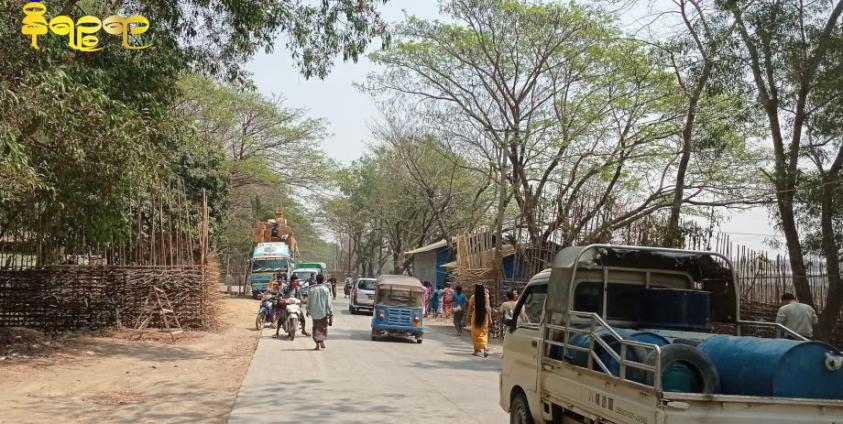“The regime’s policy of stopping medicine access for the AA ,punishing ordinary civilians”
The Military Council has enforced a ban on the importation of medicines to Rakhine State for over eight months now, ostensibly to hinder the Arakan Army (AA) from obtaining medical supplies. However pharmacies and social activists in the region have reported that the ban has had hurt ordinary civilians far more than the AA.
Despite a ceasefire with the AA that has lasted for almost five months, the Military Council is still imposing a strict ban on the importation of medicines to Rakhine State from other regions, as it is fearful that the AA may gain access to the medical supplies.
To ensure that the people of Rakhine State have access to essential medications, the Military Council should cancel its previous ban on drug importation and re-authorize the importation of pharmaceuticals into the region, a social activist in Sittwe Township, who did not want to be named told Narinjara.
“The Military Council&’s intention behind the drug importation ban is evident. They aim to prevent the AA from receiving access to medicines. It is clear that they have no regard for the well-being of the local population. Since the ceasefire has been in place for a considerable period of time, the authorities should lift the ban and allow the reimportation of medicines”, he said.
The importation of medicine into Rakhine State has been restricted by the Military Council since the resumption of fighting between it and AA in August 2022. The ban has resulted in drug shortages in pharmacies across every township.
“I am constantly experiencing medicine shortages, which has led me to purchase certain types of medicine in advance and maintain a stock. Unfortunately owing to financial constraints, I am only able to purchase a three-month supply of medicine in advance”, a pharmacy owner from Ponnagyun Township told Narinjara.
According to pharmaceutical companies and pharmacy owners, an official statement from the Military Council has announced restrictions on the import of medicine to Rakhine State.
Checkpoints are being set up repeatedly along the route, further limiting the flow of medical supplies to the region.
Pharmacy owners are reporting delays in receiving pre-ordered medicines due to such multilateral sanctions and inspections, there are almost constantly shortages of medication in the market.
According to some medicine importers, in order to transport medication freely, they are required to obtain a certificate of approval from the Minister of Security and
Border Affairs of the Rakhine State government. But obtaining this certificate may involve paying a bribe of up to 3 million kyats.
However Narinjara could not independently confirm the validity of that claim.
A pharmacy owner said “We are unable to obtain the approval certificate from the Ministry of Security and Border Affairs. The cost of obtaining the certificate is prohibitively high and beyond our financial means. Those operating with limited capital have no hope of obtaining such certificate.”
A company employee, who requested anonymity, has revealed that pharmaceutical companies operating in Sittwe face huge obstacles.
“We need to transport medicines to remote rural areas via Sittwe using trucks. However our trucks are frequently stopped and inspected at checkpoints in townships such as Kyauktaw and Mruak-U. Unfortunately transporting medicines by truck is prohibited, and the trucks headed for
Mrauk-U are not permitted to carry large cardboard boxes of medicine. Consequently we are facing multiple operational difficulties”, he explained.
Sources close to the healthcare sector have reported that even if they want to transport medicines approved by the Ministry of Health, there are unnecessary delays in transporting medicines due to the bureaucratic and time-consuming process of obtaining permission.
Narinjara attempted to contact Colonel Kay Thura, the Minister of Security and Border Affairs of the Rakhine State government, on multiple occasions regarding these issues, but did not receive any response.
As a result of these limitations, the cost of pharmaceuticals in Rakhine State is steadily increasing.
Photo: A checkpoint operated by the Military Council during a rigorous inspection in Kyauktaw Township in March 2023







